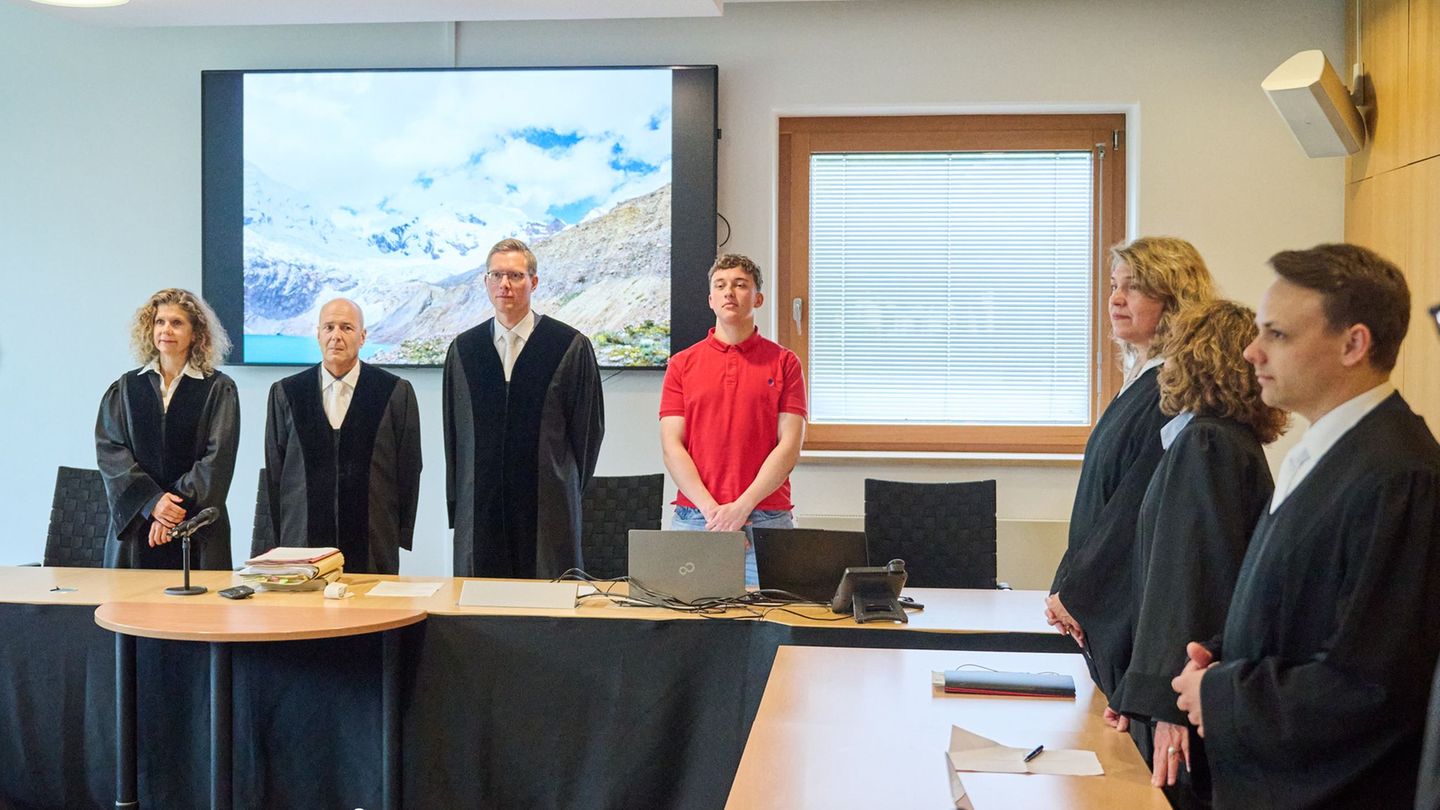Civil lawsuit
Peruvian farmer fails with “climate lawsuit” against RWE
Copy the current link
Add to the memorial list
Does the coal -fired power plant operator RWE participate in protective measures against a possible flood wave through a Lake Glacier in Peru? The OLG Hamm says no – and but.
The accrued costs are huge, many people have participated in the so -called climate lawsuit of a Peruvian farmer and mountain guide against the energy group RWE for years. The presiding judge Rolf Meyer at the Higher Regional Court (OLG) Hamm spoke of an important process when the judgment was justified. The court and expert costs alone amount to around 800,000 euros.
In the end, the court rejected the Peruvian’s lawsuit. The farmer and mountain guide Saúl Luciano Lliuya wanted to achieve the civil trial that RWE participated in costs for protective measures against a possible tidal wave through the Gletschersee Palcacococha. Previously, the district court of Essen had already dealt with the lawsuit.
Court is based on expert reports from experts
To justify the judgment, the presiding judge Meyer said the probability that the plaintiff’s house could be triggered in the next 30 years by a flood wave, for example by a glacier cancellation or a so -called rock fall, was too low. The Senate is based on expert reports.
The legal basis is the Civil Code. According to the OLG, the plaintiff could be entitled to ensure that RWE, as the cause of CO2 emissions, could be obliged to cover costs for a protective dam. The distance between RWE in Germany and the plaintiff in Peru does not matter.
The OLG emphasized that RWE could not rely on the supply mandate under German law in order to justify the plaintiff’s ownership in Peru. In this individual case, however, there is no concrete danger for its property.
In his reasoning, the presiding judge stated in detail that the dangers from CO2’s emissions had long been known and scientifically proven. He referred to studies from the 1960s in the United States and the findings of German researchers. The judgment now felled by the OLG is nothing new, emphasized Meyer. That is constant jurisdiction in Germany. “We didn’t come up with anything new,” he said.
The Higher Regional Court did not allow revision. However, since the amount in dispute is too low, no complaint is possible. The legal process to the Federal Court of Justice in Karlsruhe is therefore not possible.
Greenpeace sees success for climate protection officers
Roda Verheyen, lawyer of Luciano Lliuya, thanked her client for the seriousness with whom the court had treated the case. “Large issuers can be held responsible for the consequences of their greenhouse gas emissions. German civil law is applicable in the context of the climate crisis,” said Verheyen.
The court has rated the flood risk for its client as not sufficiently high. But it is clear: “Today’s judgment is a milestone and will give climate lawsuits against fossil companies and thus the departure of fossil fuels worldwide.”
The environmental protection organization Greenpeace also spoke of a success for climate protectors because the court clearly says: “Large climate -damaging companies can be held accountable”. It emphasizes the responsibility of these companies for the climate crisis.
RWE: try to create legal precedent
From the point of view of RWE, the attempt supported by non-governmental organizations has failed to create a precedent through the lawsuit in order to blame companies for the effects of climate change worldwide.
RWE thought such a civil law “climate rescue” under German law was inadmissible. It would have unforeseeable consequences for the industrial location of Germany because ultimately claims from climate damage could be asserted somewhere in the world against every German company.
dpa
Source: Stern




